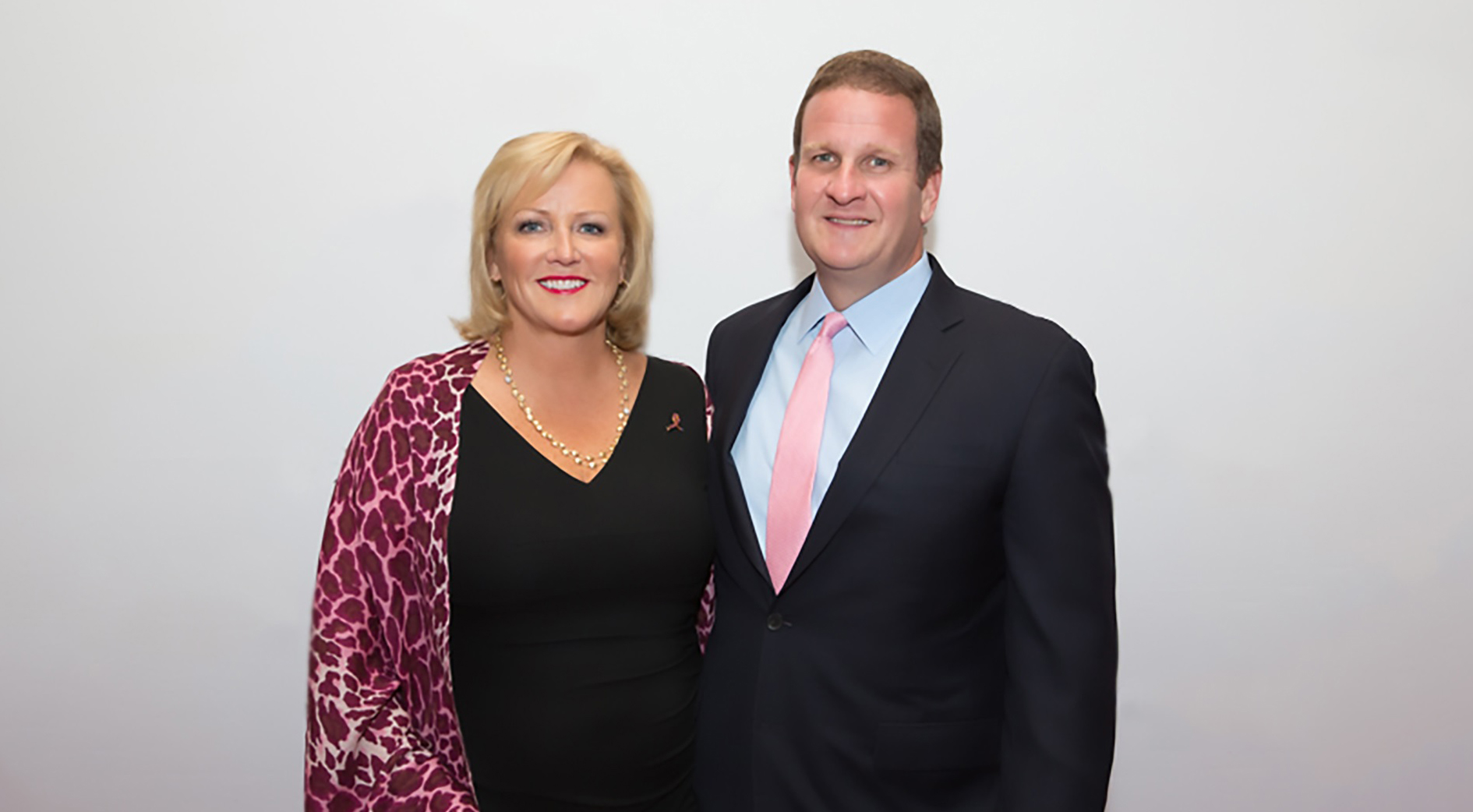
Hales launch cancer patient navigator program
“A cancer diagnosis is uncertain and scary for patients, and this program adds an extra layer of support that’s reassuring.” —KAREN HALE
“One of the hardest parts of a cancer journey is when you have to wait—wait for the results, wait for the doctor to call, wait to know what the next step is,” says Karen Hale, a trustee and benefactor of the Brigham who has seen the impact of cancer on her family. Karen and her husband, Rob, made Brigham history when they made the largest individual gift ever received by the hospital. Recently, the couple made a new contribution to help guide patients and families through their cancer journey. Their $900,000 gift, which has been matched by an anonymous donor, has launched a pilot Patient Navigator Program.
Karen notes, “A cancer diagnosis is uncertain and scary for patients, and this program adds an extra layer of support that’s reassuring.”
The program is the vision of Gerard Doherty, MD, chair of the Department of Surgery, and Daphne Haas-Kogan, MD, chair of the Department of Radiation Oncology. Together, they designed the pilot phase to streamline cancer care for patients with thoracic and gastrointestinal cancers. Two patient navigators who are highly trained physician assistants have been recruited to coordinate care across radiology, surgery, psychiatry, social services, and other hospital services with the support of administrative staff.
“The program started recently, and we’re grateful to implement this new level of support for patients with two of the most complex types of cancer,” says Haas-Kogan.
In addition to coordinating care, patient navigators promptly reply to patients’ questions and make recommendations when the unexpected arises.
“Having a single point of contact makes things more manageable for patients and families—it’s just priceless,” says Rob.
“Our goal,” says Doherty, “is to expand to a hospital-wide program assisting patients with all types of cancer. Thank you to the Hales and these anonymous donors for their commitment to fill a crucial role in cancer care.”
Adds Karen, “We are excited by the possibilities and look forward to seeing it roll out on a much larger scale. The people at the Brigham are incredible, and we expect this program will enable the hospital to provide even better care.”